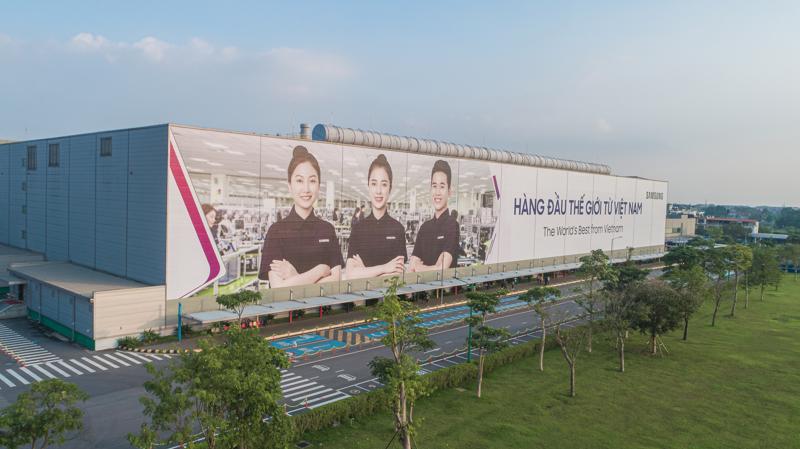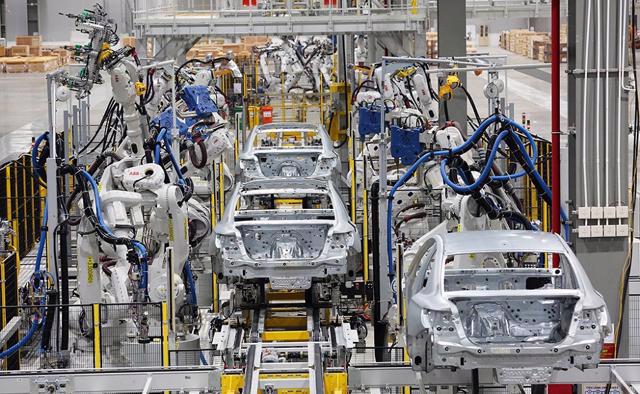Vietnam’s economy is expected to thrive in 2024 thanks to its openness and strong fundamentals, with the manufacturing and export sectors leading the way by drawing significant inward investments, analysts from Asia House, an independent think tank and advisory service from the UK, wrote in their Annual Outlook 2024 report released on January 23.
The report analyzes and predicts the outlook for eight of the largest Asian economies in 2024, which are China, India, Japan, Thailand, Malaysia, Indonesia, Vietnam, and the Philippines.
In the first ten months of 2023, the report noted, FDI in Vietnam’s manufacturing reached $18 billion, or around 73 per cent of total registered FDI in the period. Foreign investors also see the country as a destination of potential for diversifying their supply chains.
The British think tank also values Vietnam’s tech startup environment, and recognizes the significant public investment being made towards new technologies like AI. Government bodies like the National Innovation Center have supported tech breakthroughs in multiple sectors, while the banking sector is very active in AI testing and application.
VPBank, for example, has applied AI in currency transactions, personal credit, and digital banking, while Vietcombank has cooperated with FPT Smart Cloud to develop a customer chatbot platform, called VCB Digibot.
Asia House forecasts that 2024 will be the year that AI reshapes multiple sectors of Vietnam’s economy and boosts productive investments. Its report recommends that by cooperating with educational institutions and actively participating in the development of AI infrastructure, Vietnam can use inward investments to catalyze positive economic spillovers, both horizontally and vertically.

Vietnam’s agricultural sector is one that can benefit greatly from inward investments in precision agriculture and AI monitoring and analysis to optimize yields and fertilizer use.
“AI can also be used to collect data on soil conditions, weather, crop growth, and water usage, while sensors and drones can also provide key data,” the report noted. “This can influence decisions on seed planting, fertilization, pest management, and other agronomic procedures.”
Besides technology, Vietnam is also poised to develop a green finance ecosystem. The report emphasized that creating regulatory incentives to encourage a shift to financing the green economy will be key in 2024 and beyond.
Asia House also noted the current efforts from Vietnam in developing a green financial market. One example given is the Bank for Investment and Development of Vietnam (BIDV) becoming the first bank to issue green bonds, with the proceeds used to finance green, energy-saving, emissions-reducing, and environmentally-friendly projects.
This was the first domestic green bond issuance in Vietnam’s capital market scored by Moody’s, and the first senior, unsecured, and unguaranteed green bond issue in the country.
The report authors believe that continued promotion and scaling of incentives to attract and channel green finance, with the engagement of domestic financial institutions, will spur Vietnam’s energy transition and help build resilience against climate shocks.
Mr. Michael Lawrence, Chief Executive of Asia House, said the center of economic gravity has been shifting to Asia for a number of years but that shift will accelerate in 2024. High growth rates, spurred in part by rapid digitalization, will help increase productivity and regional trade.
“Several of the countries examined in our report will record growth in excess of 6 per cent, easily outperforming most developed economies,” he predicted.
Despite warning that there remain several risks, particularly in what promises to be a turbulent year in terms of geopolitics and the global macro-economic environment, Mr. Lawrence nonetheless believes that Asia is well placed to weather any shocks and still deliver robust growth.









 Google translate
Google translate